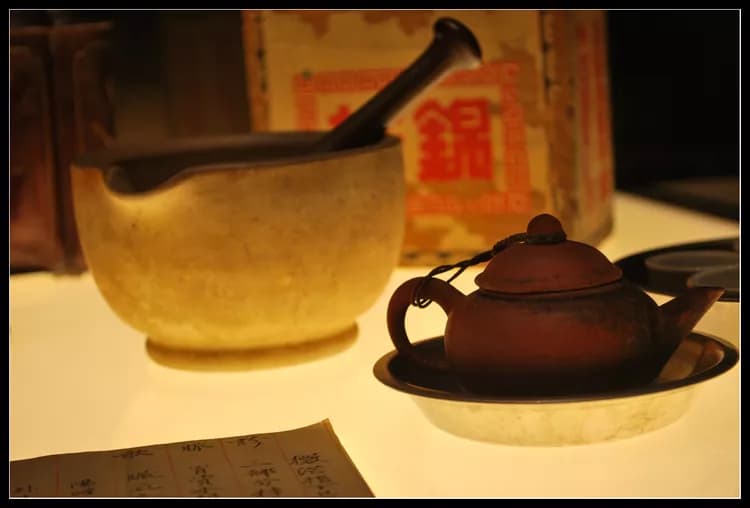What is Traditional Chinese Medicine?
Traditional Chinese medicine (TCM) has evolved over the past 2500 years or so. TCM utilizes numerous herbal medicines along with mind and body practices. The TCM practitioners’ fundamental theories are Yin-yang (opposite elements in a system that are complimentary) and wu xing (five elements), which are believed to explain all natural phenomena that occur in the universe.
History of Traditional Chinese Medicine:
There are two ancient Chinese philosophical systems that are the basis for TCM. The Yin-yang theory explains how opposites are interdependent and interchangeable to ensure balance and harmony; an imbalance is believed to cause disease. The five elements (or five phases) theory describes how wood, fire, earth, metal, and water explain the connection between the human body and the environment, along with how the body changes during disease. Another key element of TCM is Qi (pronounced chi), the vital energy within the body that is necessary for life.
How does Traditional Chinese Medicine work?
When someone becomes ill, a TCM practitioner uses four diagnostic methods to properly evaluate the patient’s conditions:
- Inspection
- Auscultation (or listening)
- Inquiring
- Palpitation
There are three main treatment methods deployed depending on the diagnosis:
- Chinese herbal medication: Primarily plant based, includes some mineral and animal products; combinations are made from thousands of medicinal substances and delivered in teas, capsules, etc.
- Acupuncture: Specific locations in the body are stimulated by penetrating the skin with thin, solid, metal needles that are operated by hand or electrical stimulation
- Tai chi: Mind/body exercise involving soft, dance-like motions that is focused on calming the mind and body
Scientific evidence:
There is insufficient scientific evidence on whether or not TCM is effective in treating any condition. Thus, it should not be used to replace conventional medical practices. The following are some of the research conducted to investigate the validity of TCM:
- Chinese herbal medication: Chinese herbal medication: Possible benefits in a variety of conditions but inconclusive due to small sample size and lack of good quality studies and evidence
- Acupuncture: Back, neck, and chronic headache relief seen in studies; however, these could be the result of the placebo effect and not actually its therapeutic ability
- Tai chi: The limited research on this technique shows promise in its ability to improve patient’s balance in Parkinson’s disease
Overall, there is no scientific evidence to validate any of the techniques’ effectiveness. However, due to the low success rate and quality of life of individuals suffering from cancer, alternative medicines like TCM are being explored as potential methods of treatment. There is limited and low quality clinical trials that indicate a positive link between combining chemotherapy with Chinese herbal medicine and acupuncture. The results indicate prolonged and increased quality of life. However, more rigorous and well-designed clinical trials need to be conducted to validate these promising results.
The risks of Traditional Chinese Medicine:
The information on complications and overall safety of TCM are limited. There have been reports of allergic reactions, burns, and infections, but it is unclear how commonly these side effects occur. Some reported side effects associated with the treatment using TCM are:
- Chinese herbal medicine: Reports of drug, toxin, and heavy metal contamination (arsenic and lead), which may cause complications such as stroke or heart attack (Example: the medicine “ma huang” or ephedra). Most of the herbal medications are considered to be dietary supplements by the FDA, and a proof of their effectiveness is not required for distribution. Additionally, such supplements are reported to interact with medications an individual might be taking, and lead to fatalities. Some examples are:
- The herb, Gingko biloba, taken for memory boost, interacts with aspirin (generally prescribed as a blood thinner) and may lead to internal and external bleeding.
- Dong Quai, used for easing menopausal symptoms in women, is known to lower blood pressure. If taken with medication used to lower blood pressure, Dong Quai can make the blood pressure dangerously low, which can be fatal.
- Acupuncture: if improperly performed by an inexperienced practitioner, it can cause serious side effects such as bruising, soreness, tiredness or weakness, dizziness, muscle twitches, bouts of crying or getting emotional and worsening of symptoms for which treatment was sought (before the condition improves)
- Tai chi: generally considered safe. However, individuals who do not have proper body position during exercise or those who exert themselves by over-exercising, may experience muscle soreness.
A word of caution:
Please consult with your healthcare provider before initiating alternative therapies. Tell your healthcare provider about any complementary and alternative practices you use. Give them a full picture of what you do to manage your health. This will help your healthcare provider assess your clinical situation better. This will also help them take appropriate clinical measures to assist you. Full disclosure to your healthcare provider will help ensure a coordinated and safe care.
Written by Monique Richards
References:
NCCIH. (2009). Retrieved April 6, 2016, from https://nccih.nih.gov/health/whatiscam/chinesemed.htm
Lao, L., Xu, L., & Xu, S. (2012). Traditional Chinese Medicine. Integrative Pediatric Oncology Pediatric Oncology, 125-135. doi:10.1007/978-3-642-04201-0_9
Dong quai (Angelica sinensis). (n.d.). Retrieved April 11, 2016, from http://www.mayoclinic.org/drugs-supplements/dong-quai/safety/hrb-20059206
Related Articles
Test Your Knowledge
Asked by users
Related Centers
Related Specialties
Related Physicians
Related Procedures
Related Resources
Join DoveHubs
and connect with fellow professionals


0 Comments
Please log in to post a comment.